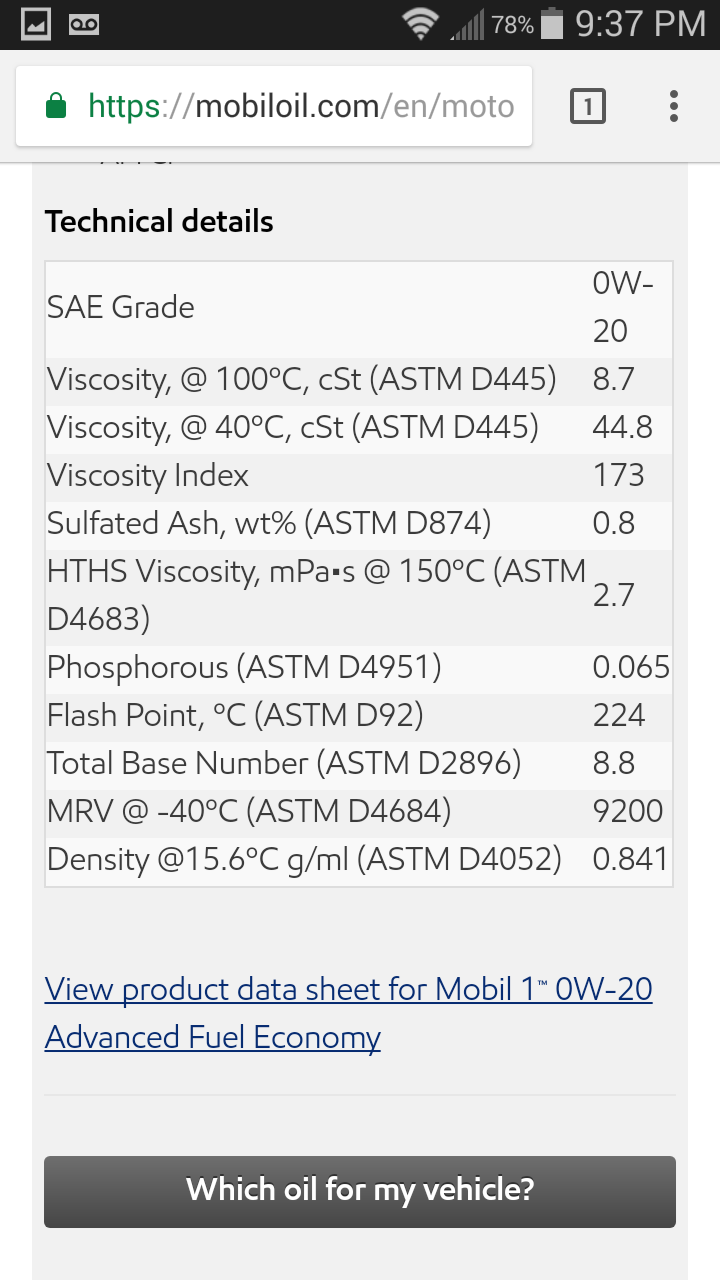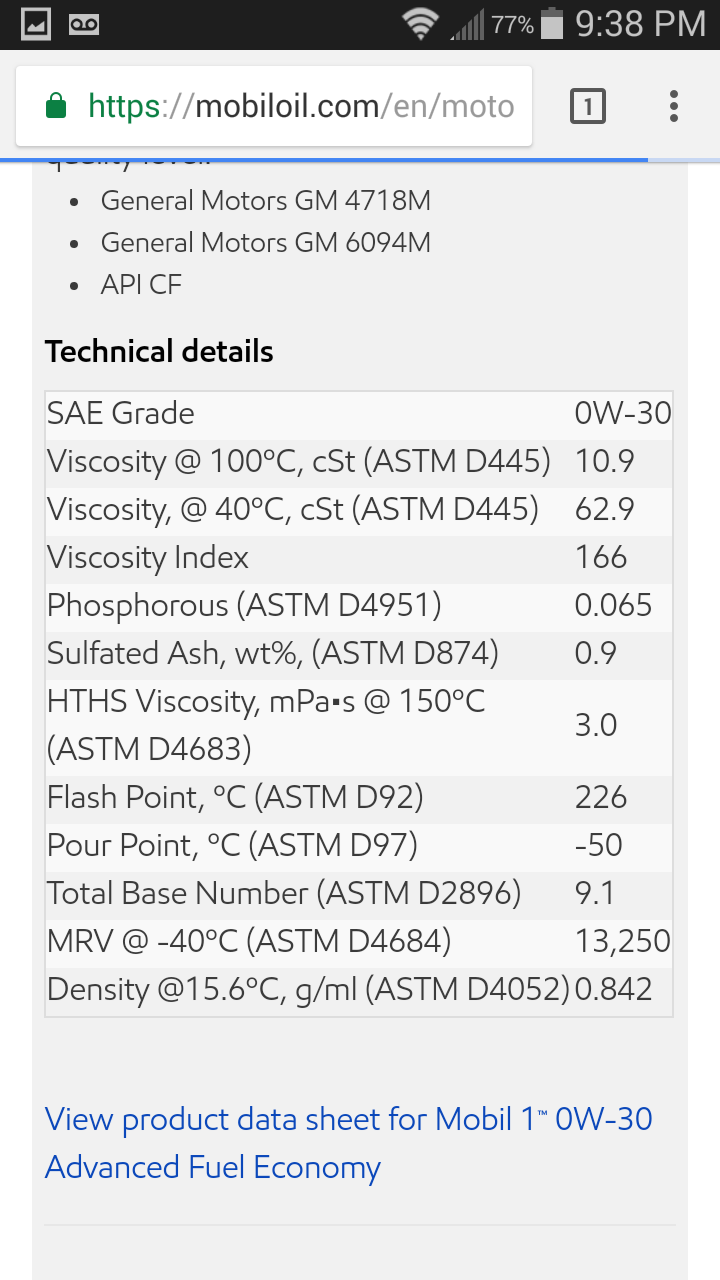0W-20 oil
#1
After installing a thermo fan which reduced fuel consumption and noise considerably, (about 8+% especially on the highway) I decided to try 0W-20 full syn SN spec oil. And yes, it too reduced fuel usage by about 2-3%. Oil pressure & oil temp remains unchanged. (have installed gauges for both) ... I now have gone from 8.2L-100km to 7L-100km highway... The return drive to mums is 650km... done this maybe 100 times... When I got this car 8 years ago I could not drive a return trip without a top up... now to my astonishment I can do this return trip and there is 80km left in the tank.
Fuel saving per year would be approx $750 (10%)
*** Tire pressure 45psi all round.
*** After much consideration and debate, I do not believe using lighter oil will affect engine longevity one iota.
Fuel saving per year would be approx $750 (10%)
*** Tire pressure 45psi all round.
*** After much consideration and debate, I do not believe using lighter oil will affect engine longevity one iota.
#3
As newer Lexus' recommend 0W-20( right or wrong) , ask the dealer what other viscosities they have on hand...you may find that all they have is 0W-20 so they used it in your older higher mileage engine.
The "shear strength" of 0W-20 oil may prove Inadequate for your engine..
Use synthetic 0W-30 instead. of owners manual recommended 5W-30.
Take it back and have them redo your oil change...
Last edited by YODAONE; 02-01-18 at 07:41 AM.
#4
Engine oil viscosity is related to the running clearances with in. Also viscosity determines the load capacity of the lubricant. Old cars / engines that have increased clearances need to be considered as well. And good stuff thank you for using your car as a test subject, let us know if more leaks develop as well.
As an unrelated example of oil viscosity use, old radial aircraft engines like in DC-3s used SAE 60 weight equivalent oil, yes it was very thick and absolutely no multi viscosity oil allowed.
As an unrelated example of oil viscosity use, old radial aircraft engines like in DC-3s used SAE 60 weight equivalent oil, yes it was very thick and absolutely no multi viscosity oil allowed.
#5
Many views. One that I've had in mind WRT oil weights was use the oil viscosity that gives 10 PSI per 1,000 RPM under the user's operating conditions. Ours don't rev to 8-9K RPM's so the lubrication needs of those engines will be different and built accordingly. The lack of an oil pressure gauge one would have to hook it up to test. Aside from that, I can be assured that running the 5-30 is going to fulfill the value necessary for the normal operating range with a properly functioning oil pump. An oil analysis is one way to verify results after use.
One of my buddy's sent me pics and thread links of BMW Vanos rebuild and various BMW rod bearings. I'm shocked to see the bearing wear at the various intervals.
One thread here:
http://www.m5board.com/vbulletin/e60...re-thread.html
One of my buddy's sent me pics and thread links of BMW Vanos rebuild and various BMW rod bearings. I'm shocked to see the bearing wear at the various intervals.
One thread here:
http://www.m5board.com/vbulletin/e60...re-thread.html
#6
Many views. One that I've had in mind WRT oil weights was use the oil viscosity that gives 10 PSI per 1,000 RPM under the user's operating conditions. Ours don't rev to 8-9K RPM's so the lubrication needs of those engines will be different and built accordingly. The lack of an oil pressure gauge one would have to hook it up to test. Aside from that, I can be assured that running the 5-30 is going to fulfill the value necessary for the normal operating range with a properly functioning oil pump. An oil analysis is one way to verify results after use.
One of my buddy's sent me pics and thread links of BMW Vanos rebuild and various BMW rod bearings. I'm shocked to see the bearing wear at the various intervals.
One thread here:
http://www.m5board.com/vbulletin/e60...re-thread.html
One of my buddy's sent me pics and thread links of BMW Vanos rebuild and various BMW rod bearings. I'm shocked to see the bearing wear at the various intervals.
One thread here:
http://www.m5board.com/vbulletin/e60...re-thread.html
Here;
https://www.clublexus.com/forums/performance-and-maintenance/644401-facts-about-oil-and-what-grade-to-choose.html
#7


Trending Topics
#8
When auto manufacturers submit cars for EPA mleage and emissions certification, the same oil used then must be what owners manual recommends for daily use in the engine.
As newer Lexus' recommend 0W-20( right or wrong) , ask the dealer what other viscosities they have on hand...you may find that all they have is 0W-20 so they used it in your older higher mileage engine.
The "shear strength" of 0W-20 oil may prove Inadequate for your engine..
Use synthetic 0W-30 instead. of owners manual recommended 5W-30.
Take it back and have them redo your oil change...
As newer Lexus' recommend 0W-20( right or wrong) , ask the dealer what other viscosities they have on hand...you may find that all they have is 0W-20 so they used it in your older higher mileage engine.
The "shear strength" of 0W-20 oil may prove Inadequate for your engine..
Use synthetic 0W-30 instead. of owners manual recommended 5W-30.
Take it back and have them redo your oil change...
#9
Oil pressure gauge has NEVER dropped below 20psi at idle hot.
#10
Engine oil viscosity is related to the running clearances with in. Also viscosity determines the load capacity of the lubricant. Old cars / engines that have increased clearances need to be considered as well. And good stuff thank you for using your car as a test subject, let us know if more leaks develop as well.
As an unrelated example of oil viscosity use, old radial aircraft engines like in DC-3s used SAE 60 weight equivalent oil, yes it was very thick and absolutely no multi viscosity oil allowed.
As an unrelated example of oil viscosity use, old radial aircraft engines like in DC-3s used SAE 60 weight equivalent oil, yes it was very thick and absolutely no multi viscosity oil allowed.
#11
The pressure at the sender or gauge is what the relief valve sees, not what the crankshaft sees. All the pump does is "fill in the hole" and refresh the oil at the journal at least as fast as it leaks out.
The actual "local" pressure at the journal is entirely the result of the relative speeds of the crankshaft journals rotating (and, in the rod bearing, oscillating) against the bearing in feet per second (not RPM or journal size directly), the bearing width (to the closest pressure leak), oil viscosity, and temperature, balanced against the bearing clearance (the leakage rate). It's much, much higher than the gauge pressure.
This is what supports the crank.
The actual "local" pressure at the journal is entirely the result of the relative speeds of the crankshaft journals rotating (and, in the rod bearing, oscillating) against the bearing in feet per second (not RPM or journal size directly), the bearing width (to the closest pressure leak), oil viscosity, and temperature, balanced against the bearing clearance (the leakage rate). It's much, much higher than the gauge pressure.
This is what supports the crank.
#12

#13
The Lexus Dealer sold the customer the wrong oil..because that is what they had in stock... and we are being told to be OK with that...(It lacks proper viscosity at operating temperature for our engine. .there was a TSB awhile back to use 0W-20 across the board...few, if any LS400 owners actually bring their csr to the dealer for an oil change.)
To be fair, the Lexus dealer often gets it right...but not always.....
The oil technicians are entry level and are directed what oil to use...and have little or no understanding of what the numbers represent.
The author of the oil viscosity lessons posted on this website knows what he is talking about and the Lexus service manager who sold OP the wrong oil does not...That's what it means..
We can improve using 0W-30 (synthetic) in our engines, but should avoid 0W-20.
To be fair, the Lexus dealer often gets it right...but not always.....
The oil technicians are entry level and are directed what oil to use...and have little or no understanding of what the numbers represent.
The author of the oil viscosity lessons posted on this website knows what he is talking about and the Lexus service manager who sold OP the wrong oil does not...That's what it means..
We can improve using 0W-30 (synthetic) in our engines, but should avoid 0W-20.
Last edited by YODAONE; 02-02-18 at 08:09 AM.
#14
oil is THEE most debated topic in the interwebs of years! just join bobistheoilguy.com and see!
for this topic, I would stick to 5w-30 myself regardless of what the dealership tells me.
oil type matters with climate and being in southern California which rarely dips below 40 deg F in the winter (unless in the mountains) doesn't warrant a different oil.
it also matters on usage, racing or daily driving, plus oil change intervals etc.
newer lexus cars do require 0w-20 and since most dealerships service newer vehicles they will only stock that.
for this topic, I would stick to 5w-30 myself regardless of what the dealership tells me.
oil type matters with climate and being in southern California which rarely dips below 40 deg F in the winter (unless in the mountains) doesn't warrant a different oil.
it also matters on usage, racing or daily driving, plus oil change intervals etc.
newer lexus cars do require 0w-20 and since most dealerships service newer vehicles they will only stock that.
#15
oil is THEE most debated topic in the interwebs of years! just join bobistheoilguy.com and see!
for this topic, I would stick to 5w-30 myself regardless of what the dealership tells me.
oil type matters with climate and being in southern California which rarely dips below 40 deg F in the winter (unless in the mountains) doesn't warrant a different oil.
it also matters on usage, racing or daily driving, plus oil change intervals etc.
newer lexus cars do require 0w-20 and since most dealerships service newer vehicles they will only stock that.
for this topic, I would stick to 5w-30 myself regardless of what the dealership tells me.
oil type matters with climate and being in southern California which rarely dips below 40 deg F in the winter (unless in the mountains) doesn't warrant a different oil.
it also matters on usage, racing or daily driving, plus oil change intervals etc.
newer lexus cars do require 0w-20 and since most dealerships service newer vehicles they will only stock that.
I think all can agree a significant amount of wear (as a percentage of overall engine wear) occurs at cold start-up/warm-up.
The 0W is an improvement...for any climate..
The prefix pair represents cold start viscosity..and the second pair of numbers for engine operating temperature viscosity...
We had 10W-30, then 5W-30 and now 0W-30..
Just don't like the 0W-20. .it is too thin (subject to shear)...and if it dilutes then inadequate wear buffer....and real problems..
Last edited by YODAONE; 02-02-18 at 11:09 AM.


